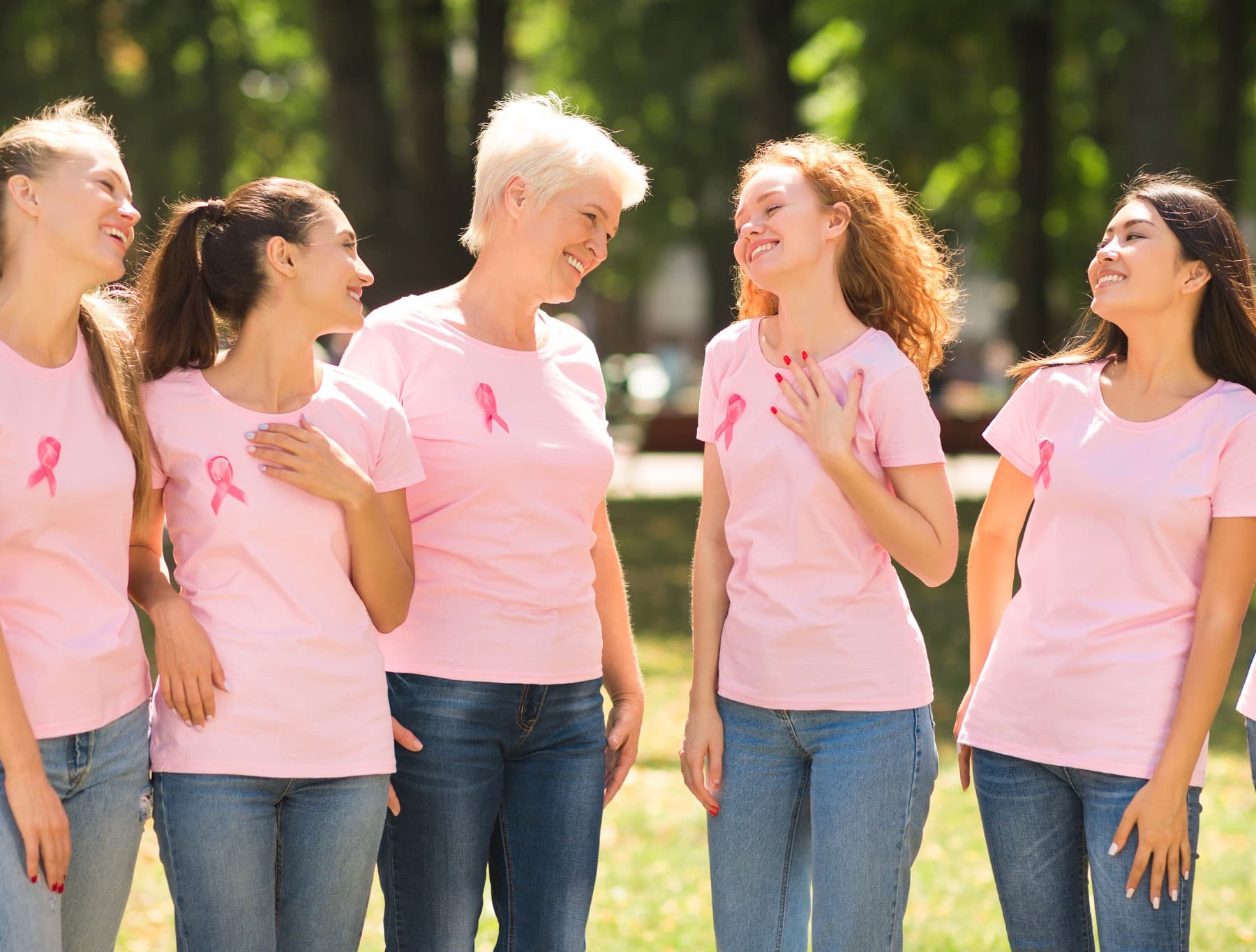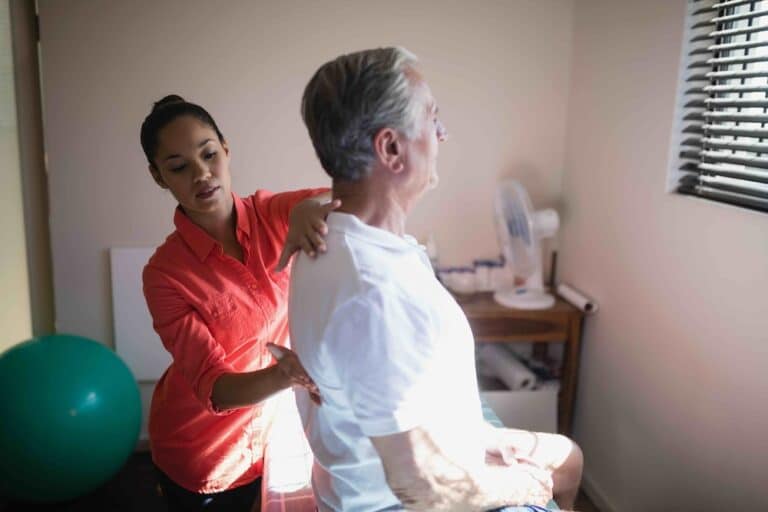Receiving a breast cancer diagnosis can be scary and stressful. On top of trying to understand your type of breast cancer, treatment options, and how to manage side effects, you might wonder about what you should or shouldn’t eat. I’m here to review good foods that can support your fight against breast cancer and which foods to avoid. I hope it empowers you and takes the guesswork out of eating during this challenging time.
To ensure you are adequately nourished and provide your body with the tools to fight off your cancer, focus on maintaining a balanced diet that incorporates foods packed with nutrients. Your food choices should include lean proteins, healthy fats, fruits, vegetables, whole grains, and low-fat dairy products. The nutrients found in these food groups are essential for preserving muscle mass, supporting recovery during cancer treatment, reducing inflammation, and lowering your risk for future health concerns and cancer recurrence. Below is a brief overview of foods and beverages you can include in your diet. Check out my video on Burnalong to learn more about why these foods are especially important during breast cancer treatment.
- Lean proteins: chicken, turkey, fish, eggs, and plant-based proteins like beans, lentils, nuts, seeds, tofu, edamame, or other soy-based foods. Yes, you read that right! You can eat foods that contain soy during cancer treatment. It is safe to consume moderate amounts of soy daily such as 4 oz tofu, ½ cups of edamame, or 8 oz soymilk.
- Healthy fats: olive oil, avocado oil, avocado, almonds, walnuts, chia seeds, ground flaxseeds, and fatty fish (salmon, herring, sardines, mackerel, tuna).
- Fruits, vegetables, whole grains: especially helpful options include garlic, Brussel sprouts, spinach, kale, lettuce, celery, sweet peppers, potatoes, tomatoes, broccoli, cauliflower, cabbage, winter squash, wheat bran, pomegranate, citrus fruits, and all types of berries. Aim for 5-9 servings of fruits and vegetables and 6 servings of whole grains daily!
- Low-fat dairy products: skim or 1% milk, yogurt, and cheese made with part-skim milk.
- Beverages: aim for a daily intake of at least 72 oz of fluid intake from water unless advised by your physician to restrict fluid. Sparkling water or ginger tea may be helpful to ease nausea.
Avoiding or limiting certain foods can help maintain a healthy body weight, ensure dietary intake does not interfere with cancer treatment, and limit risks for complications and future health concerns.
- It is best to avoid foods that are high in saturated fat, sodium, and/or added-sugar and limit alcohol intake to no more than one drink daily. This can help avoid weight gain, protect your heart health, and reduce inflammation. For a good summary of specific foods to avoid check out my videos on Pro-Inflammatory Foods. Please note, nutrition recommendations are different if you experience significant weight loss during cancer treatment and you should consult my video on this topic for recommendations.
- If you undergo chemotherapy, you may develop neutropenia and your ability to fight off infections is impaired. You can reduce your risk for infection by avoiding foods that are associated with food borne illness including unwashed fresh produce, unpasteurized or raw dairy products, soft-cooked or raw eggs, and undercooked or raw meats and fish.
- Some chemotherapy and breast cancer treatment medications interact with grapefruit and grapefruit juice. Check with your physician to see if you should avoid it.
- Avoid antioxidant, herbal, green tea, and phytoestrogen supplements. Research indicates that these supplements do not provide the same benefit as food sources of vitamins, minerals, and antioxidants and may interact with cancer treatment interventions. Please talk with your physician prior to starting any supplement to ensure it is safe for you during treatment!
- If you experience nausea and/or vomiting, it’s important to avoid greasy, sweet, spicy, or strong-smelling foods. Check out my video on Burnalong for more recommendations on managing this side effect.
Remember, do not expect perfection with your eating habits and you’re doing the best you can during a challenging circumstance. Check out my videos on Burnalong for how to manage other side effects associated with cancer treatment like taste changes and fatigue. Be sure to also discuss any symptoms affecting your eating with your physician and request a referral to a Registered Dietitian for more personalized diet recommendations. Good luck!
References:
Collins, Karen. “Soy and Cancer: Myths and Misconceptions.” American Institute for Cancer Research (blog), February 19, 2019. https://www.aicr.org/resources/blog/soy-and-cancer-myths-and-misconceptions/.
Escott-Stump, Sylvia. Nutrition and Diagnosis-Related Care. 9th ed. Academy of Nutrition and Dietetics, 2022.
Limon-Miro, Ana Teresa, Veronica Lopez-Teros, and Humberto Astiazaran-Garcia. “Dietary Guidelines for Breast Cancer Patients: A Critical Review.” Advances in Nutrition 8, no. 4 (July 6, 2017): 613–23. https://doi.org/10.3945/an.116.014423.
Rock, Cheryl L., Cynthia Thomson, Ted Gansler, Susan M. Gapstur, Marjorie L. McCullough, Alpa V. Patel, Kimberly S. Andrews, et al. “American Cancer Society Guideline for Diet and Physical Activity for Cancer Prevention.” CA: A Cancer Journal for Clinicians 70, no. 4 (2020): 245–71. https://doi.org/10.3322/caac.21591.
“Oncology Nutrition Dietetics Practice Group.” Accessed August 24, 2023. https://www.oncologynutrition.org.
Joanne Corrigan RD, CD is a Pacific Northwest-based Registered Dietitian with almost 11 years of clinical experience. She has primarily worked as an outpatient dietitian where she provided nutrition counseling for a variety of clinical conditions including diabetes, heart disease, pregnancy, chronic kidney disease, and cancer recovery. While she enjoys teaching patients about the importance of nutrition in supporting overall health, she is especially passionate about making nutrition inclusive, approachable, and delicious!







